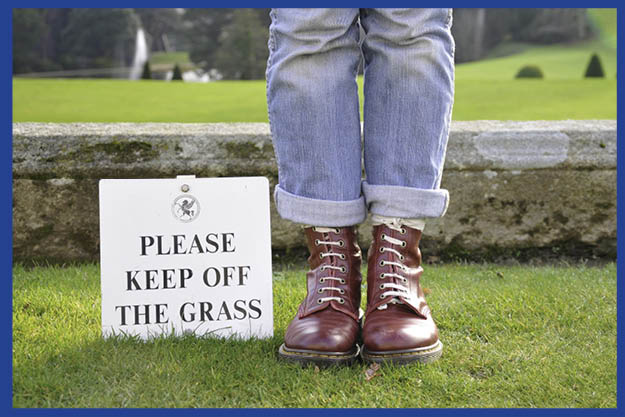Rules
Dear Dr. Linda,
I’m a retired teacher and grandmother of six. I read your column every week and decided it’s time to add my two cents. I’m concerned that no one is teaching our children and their parents that they need to follow rules of etiquette ranging from saying “thank you” when you hold the door for them or saying, “I’m sorry” when they bump into you with the shopping cart at the supermarket. I walk every day on a trail with my friends. The other day a young mom was walking with her little one who was riding a bike. He went right in front of me and I almost fell. I politely said, “He is supposed to be riding on that side of the trail. That’s the rule.” She didn’t hear what I said because she was on her cell phone. When she finally heard me, she said, “He’s only four!” In order to have a civil society, one of the first rules is to establish a set of rules of etiquette on how to be nice and civil to each other. Is it the school’s responsibility or the parents or both to teach these basic rules to children? Sylvia
Dear Sylvia,
Most rules of etiquette are usually taught at home. They serve as boundaries to establish what is and isn’t acceptable behavior to ensure that everyone treats each other with respect.
As with any rules, in order for them to be effective, the rules need to be well thought out, logical, and fair to all involved. They have to make sense. For example, the rule of etiquette that existed for years is that if you went out to dinner and a man was present, the man always paid the bill. If women were together, they would split the bill. Those rules have changed, even though some may still hold onto them.
Sometimes rules should change, especially if they no longer make sense. Think about your family rules. Do they all make sense? Are you so entrenched in them that they could actually hurt relationships in the family? Families establish their own rules and then judge everyone else in the family and outside of the family by them. For example, a family rule in the Smith family is that everyone meets at Grandma’s and Grandpa’s house for a 4th of July picnic every year, including aunts, uncles and cousins. But life goes on and things change. Susan marries Jack and they move away. Susan’s brother Fred marries Carol and Carol’s family’s rule is that her family goes on vacation every 4th of July. Suddenly, the family members who are not following the family rule become outcasts and the gossip flies.
Rules change because lives change. A spouse comes into a family with their own rules, parenthood creates a new set of rules, when someone dies a new set of rules are created, etc. If someone in the family doesn’t understand that, or becomes insulted or angry, and in some cases even stops talking to another member of the family, the problem becomes that family members problem and that person has to learn how to deal with it. Rules can change and even be broken.
Some rules are timeless and just make common sense. They are the rules that have to do with showing respect for others around you. Since humans are social animals and don’t live on isolated islands, there needs to be codes and rules that everyone follows that deal with politeness, kindness and showing appreciation. And the things you mentioned are among those. If someone bumps into you by mistake, that person should say, “I’m sorry.” If you’re eating with others, it is not socially acceptable to chew with your mouth opened. If someone holds the door for you, you say, “Thank you.” If you let a car into your lane, the driver from the car you let in either waves, nods or flashes lights to say thank you. Social rules are everywhere, from the library to the bike trail.
Schools and teachers can reinforce rules to help students practice and develop good social habits, but the first rules we encounter are family rules, it’s the family that is responsible for teaching these common-sense rules in the first place.
Dr. Linda
Co-author of Why Bad Grades Happen to Good Kids and director of Strong Learning Tutoring and Test Prep, Inc. If you have any questions you’d like to share with Dr. Linda, email her at Linda@stronglearning.com.


Comments are closed.